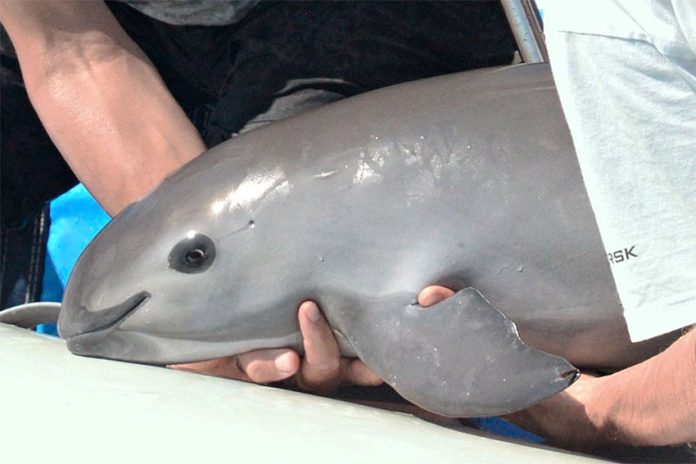Three conservation groups sued the U.S. Department of the Interior on Wednesday, demanding sanctions on Mexico over its failure to combat illegal fishing practices that have driven the vaquita porpoise to the brink of extinction.
The Center for Biological Diversity (CBD) joined with the Animal Welfare Institute and the Natural Resources Defense Council to file the lawsuit in the United States Court of International Trade. It calls for the U.S. to certify Mexico under a fisheries law called the “Pelly Amendment,” which would authorize the U.S. president to embargo Mexican wildlife products.
“We’ve watched the vaquita population plummet over the past decade from 200, to 100, to 60, and now to only around 10,” said Sarah Uhlemann, international program director at the CBD. “We need economic pressure to force Mexico to finally wake up and stop this little porpoise’s extinction.”
The vaquita is the world’s smallest porpoise, native to the Gulf of California. Its drastic decline is due largely to the porpoises getting tangled in illegal fishing nets used to catch other marine life — notably the endangered totoaba fish, which is coveted for its use in Chinese medicine.
Although totoaba fishing is banned under the Convention on International Trade in Endangered Species of Wild Fauna and Flora (CITES) and in Mexican domestic law, the practice is widespread in the Gulf of California. It has likely accelerated since July 2021, when the Mexican government scrapped its “zero tolerance” policy towards fishing inside the Vaquita Protection Refuge, instead imposing a scale of penalties based on the number of vessels in the area.
The International Union for Conservation of Nature reported the presence of illegal fishing vessels in the area on 88% days observed between October 2021 and May 2022, and 29 vessels were seen on Dec. 1 alone.
Mexico has already been reprimanded for its failure to protect the vaquita. The conservation groups involved in the lawsuit first requested sanctions on Mexico in 2014, and CITES told Mexico in mid-November that it could face sanctions early next year if it failed to take action.
“Despite international outcry, Mexico has failed for decades to stop illegal fishing in the Upper Gulf of California,” said D.J. Schubert, a wildlife biologist at the Animal Welfare Institute, after the lawsuit was made public. “It is disappointing that the United States has failed to hold Mexico accountable for its dismal record of enforcement when the vaquita is on the precipice of extinction.”
Certification under the Pelly Amendment could potentially stop all Mexican seafood exports to the U.S. These exports were worth nearly $600 million in 2021 — 40% of Mexico’s seafood trade.
With reports from Reuters and InSight Crime
